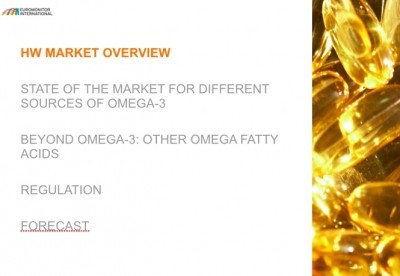Guest Commentary
A Whale of a Fish Story for Omega-3s

Even as I read the press coverage, I was struck by what an amazing example this study is of how inconclusive research findings somehow become sweeping recommendations for consumers that don’t reflect what the science actually shows.
First, it is necessary to understand what the study did show. The researchers identified 834 men from the SELECT trial (originally designed to examine vitamin E and selenium, not fish oil) who were subsequently diagnosed with prostate cancer. It matched them, based on age and race, with 1,393 men from the study who did not develop cancer. Then the researchers examined the amount of fatty acids in the baseline blood samples from the beginning of the SELECT trial (a single blood draw) and performed a series of statistical operations to compare those who did and did not develop cancer with the level of omega-3s at that moment in time.
Immediately, there are some problems with their conclusions. An observational study cannot demonstrate causality; just an association – regardless of the assertions the authors made in their press release. Note too that the analysis of the blood did not identify the source of the omega-3s – fish intake or supplement.
Given the headlines, one wonders if there were possible confounders that would have explained the results short of a causal connection. Over 72 percent of the men who eventually developed prostate cancer already had PSA levels of 2 or greater when their blood serum was tested; among the non-cancer cohort, less than 23 percent had these PSA levels – that’s a three-fold difference. In addition, almost twice the percentage of men in the cancer cohort, as compared to the control group, already had a first-degree relative with prostate cancer.
Could it be that these men were either eating more fish or using fish oil supplements (again, we don’t know which) because they were already at higher risk of developing the disease? Their doctors were surely aware of the existing research pointing toward higher levels of omega-3s and reduced cancer risk. To the extent a causal relationship could be inferred, it may have been just the opposite: increased risk factors for prostate cancer led these men to include more fish or fish oil supplements in their diets. But more of these men ultimately developed prostate cancer despite, not because, of their higher omega-3 levels.
It’s even more curious that there was no apparent effect on cancer risk from smoking, heavy drinking or larger body mass index (BMI) – all of which are commonly known to increase cancer risk.
The study compared serum levels of omega-3s; it did not endeavor to determine whether they came from intake of fish or a dietary supplement. Could a fried filet-o-fish at lunch just before the blood was drawn have been a culprit? The researchers indicated in their study press release that “The difference in blood concentrations of omega-3 fatty acids between the lowest and highest risk groups was about 2.5 percentage points (3.2 percent vs. 5.7 percent), which is somewhat larger than the effect of eating salmon twice a week.” But those modest differences in omega-3 levels still seem well below the serum levels one would expect in a diet that is rich in either fish or fish oil supplements. If modest differences in serum levels could increase prostate cancer risks at those ranges, one would also expect that countries with the highest fish intake would be rampant with prostate cancer, when in fact the opposite is true.
Not convinced something smells fishy yet? Then consider that in the press release issued to promote the study, the researchers are quoted:
“The consistency of these findings suggests that these fatty acids are involved in prostate tumorigenesis and recommendations to increase long-chain omega-3 fatty acid intake, in particular through supplementation, should consider its potential risks,” the authors wrote. (emphasis added)
Compare this quote to the abstract published in the actual journal and the words “in particular through supplementation” do not appear. Perhaps that leap to judgment wouldn’t pass the peer review of the study itself? Then the authors are quoted – again, in the release, not the article itself – saying, "We've shown once again that use of nutritional supplements may be harmful." The reference to “once again” refers to a previous study by the same authors using the same correlational methodology and blood from another cohort that was assembled to test the prescription drug finasteride. All the same weaknesses and limitations apply there too.
It seems to me what they’ve shown is that the quest for headlines can cloud judgment and interpretation to suggest outcomes that aren’t supported by the data and may be the inverse of what really happened. This fish story demonstrates that critical analysis of a study’s design and limitations can keep us from being hooked by the wrong conclusion. A healthy dose of skepticism (along with your daily omega-3s) should be applied by consumers and journalists alike. I’ll be waiting for that to happen with baited breath.
Steve Mister
President & CEO
Council for Responsible Nutrition (CRN)
















